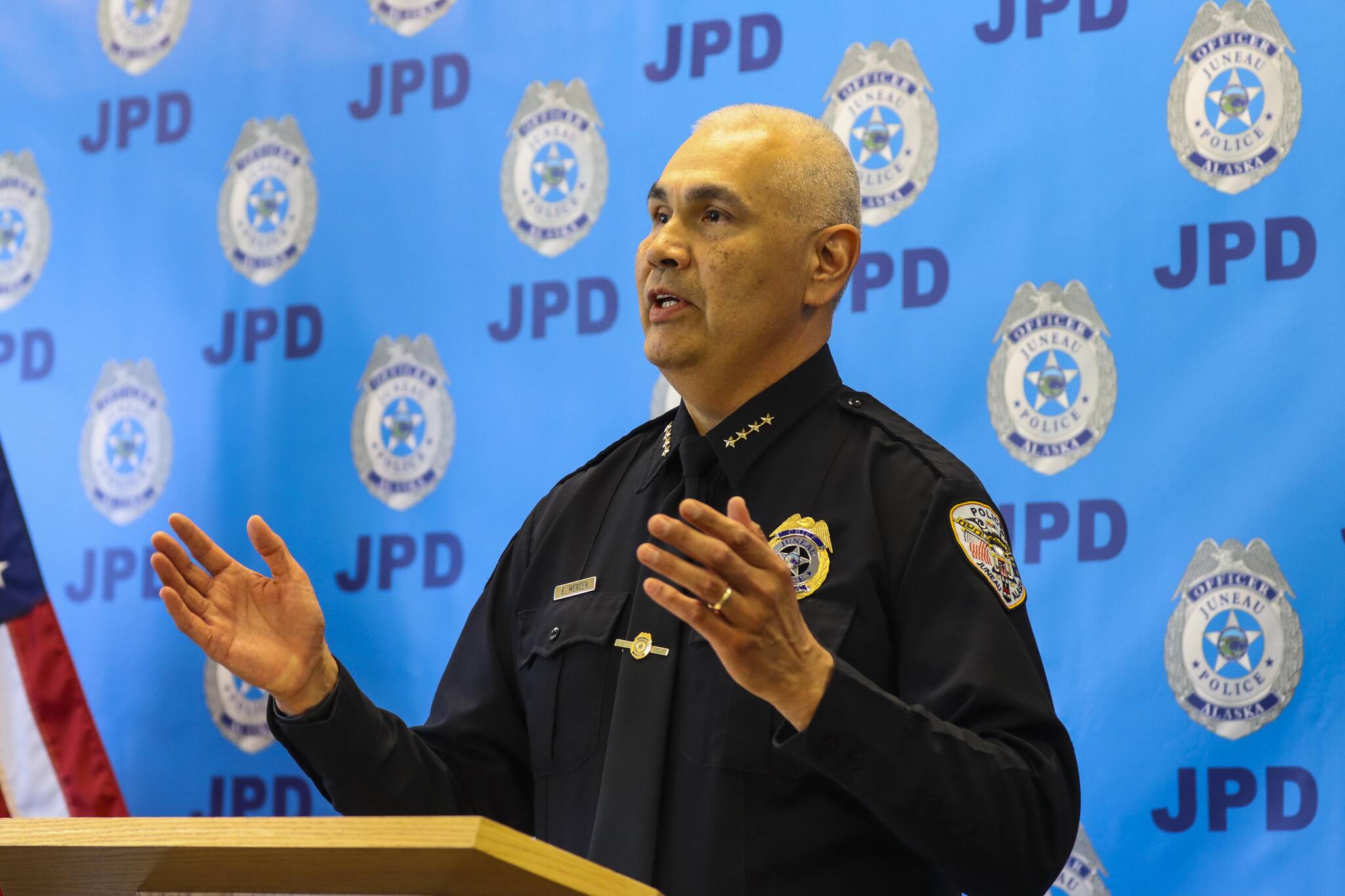While drug trafficking has always been an issue in Southeast Alaska, a string of recent high-profile, high-quantity busts have been out of the ordinary for Juneau, according to police.
Lt. Krag Campbell, who oversees the Juneau Police Department’s work with the Southeast Alaska Cities Against Drugs task force, said the three busts in the past week have stood outside the norm.
“It’s very notable. It’s more than what we’ve seen in the past,” Campbell said in a phone interview. “Just one is more than what we’ve seen in the past. And there’s been three of them.”
[Hundreds gather for Celebration grand procession]
The busts — two at Juneau International Airport and a third that was mailed to Juneau before an arrest was made in Harris Harbor — have all been valued locally at more than $100,000, according to police. Other busts earlier in the year bring local value of the drugs seized in major busts alone to more than $400,000, according to police estimates.
“I’m pretty proud of our efforts to continue to move forward in our state and our region to interdict and stop drugs coming into our community,” said JPD Chief Ed Mercer in an interview. “When we were selected to be a (High-Intensity Drug Trafficking Area) state, I only knew that this was going to assist in our effort on drug operations.”
SEACAD is funded in Alaska by the HIDTA program, a federal Drug Enforcement Administration program to support task forces financially and helps local, state and agencies to work together to increase effectiveness.
“What we capture and make arrests on is just a small fraction of what’s out there,” Campbell said. “As people are shipping more pills we’re going to see more drug busts. We’re surprised by the volume.”
The high assessed value of the busts derives in part from where the drugs were seized, Campbell said.
“Down south, pills are cheaper,” Campbell said. “That’s one of the drives for people to get it up there, to make all the profit.”
The volume is a surprise, Campbell, as the content of the busts has also shifted.
“Those (busts) are the biggest I’ve seen for a while. Especially, fentanyl pills,” Campbell said. “We’ve seen an increase in fentanyl pills coming in through our state.”
Fentanyl is a synthetic opioid stepping into the role heroin has often played due to its lower cost and more pronounced effects, Campbell said. Its potency means the chance for overdose leading to death is high, according to the DEA.
“Everyone in the nation is dealing with fentanyl and counterfeit pills that are tainted,” Mercer said. “I think this is happening across the nation. Typically in Alaska we’re a little bit behind. It seems like we’re moving a little faster on fentanyl coming in.”
Capital City Fire/Rescue has recently started participation with a state program to push access to Narcan, a nasal spray for combating opioid overdoses, out to the public.
JPD doesn’t work in a vacuum to disrupt drug trafficking to Southeast communities, Campbell said — it works with other local police departments, state agencies like the Alaska State Troopers, as well as federal agencies such as the FBI or the Coast Guard to share intelligence and interdict trafficking more effectively.
“Our goal is to disrupt the flow of drugs in and out of Southeast Alaska communities,” Campbell said. “Each town doesn’t have the resources to do that. But when we work together we can do that.”
That federal funding from the HIDTA program is what allows SEACAD to work, giving local agencies more money to interdict trafficking operations, Campbell said.
“That’s one of the things we’ve run into for years,” Campbell said. “Who’s going to pay for things?”
Campbell said the current interdiction operations are going smoothly, which may account for the recent spate of busts.
“We have a pretty good investigation process right now, at least on the Juneau side,” Campbell said. “You make busts, and you learn information that leads to more arrests and hopefully leads to more arrests.”
Tools like the Juneau Crimeline help the task force to gather more intelligence as they seek to stem the flow of drugs in the Southeast, Campbell said, with more data in the database always an asset.
“I think it’s pretty consistent,” Campbell said. “Most towns — I’d be reluctant to say all of them, but I’d say most — have problems with drugs going in and out.”
Juneau’s position as a hub also means that drugs interdicted here don’t make it out to smaller communities, Mercer said.
“Our strategy is that we’re interacting with all our law enforcement — federal, state. and local. That makes us more effective in our strategies,” Mercer said. “Interdicting it here helps out all those other communities.”
• Contact reporter Michael S. Lockett at (757) 621-1197 or mlockett@juneauempire.com.

